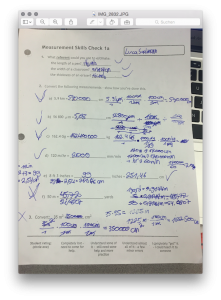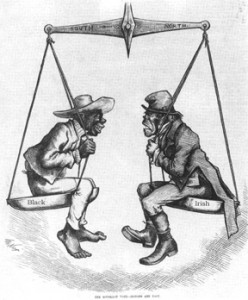David Cooper
Page 334-335
“ A part of them can principally support themselves on what they have cleared, but they have to work out to keep their families supplied.“
They are now their own masters. Before, when they were slaves, their masters told them what to do and made sure they do not starve to death. Now, there is nobody telling them what to do, so they have to learn everything by themselves, but they can decide what they want to use their land, their ow property for. It might be hard, and they might have to do something else to get enough food to live on, but they were not beat and whipped anymore.
„…, and sold to any colored men who were disposed to buy.“
Former slaves were allowed to have property. With the little money they had they could buy property and start a farm and build a house, so they were not owned by anyone else, they owned their own property. With that property they could do whatever they wanted, so whatever was good for their families and brought enough food. If they were able to grow enough they could even trade it and make more money.


